
Please, support PV!
It allows to keep PV going, with more focus towards AI, but keeping be one of the few truly independent places.
It allows to keep PV going, with more focus towards AI, but keeping be one of the few truly independent places.
iDynamic Range possible to hack?
-
Okay, so I've recently been very impressed with the "iDynamic" setting on the GH2, and the results it can achieve. It is a phenomenal feature to have, and is pretty unique out of all the video recording devices out there.
Do you reckon that it might be possible to change the threshold of the iDynamic setting, or perhaps enable some kind of manual settings (an "always on" thing would be sufficient in my book), to give the shooter more control, and stop it from requiring fair underexposure to activate it?
I've attached two pictures that REALLY show what iDynamic is capable of, and how many creative and technical opportunities it opens. Unfortunately, I wanted the interior to be brighter, but when I increased the exposure, iDynamic decided that it didn't have to do its job anymore, and turned off. :\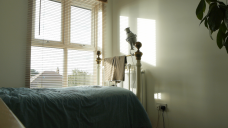
 idynamic off.png960 x 540 - 805K
idynamic off.png960 x 540 - 805K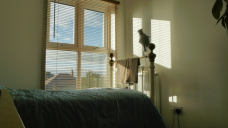
 idynamic on.png960 x 540 - 933K
idynamic on.png960 x 540 - 933K -
@danyyyel
Dynamic range comparison of GH2 to Nikon D5100:
http://www.personal-view.com/talks/discussion/1195/nikon-d5100-compared-to-panasonic-gh2#Item_24 -
@mintcheerios Thanks, I would say sub $ 10 000, even now I think it should about this level. For the dynamic range from so many conflicting sources it is difficult to evaluate where it is now. So say below, some the same as the Canons, which are about the same or superior to the af-100 and fs-100. With the hack indirectly, I think it must have gained at least a good stop in the shadows. I have been advocating some true test of the gh2 to those that have other cameras, but until now nothing.
-
The above samples are resized. I've attached the original PNG files, so you can experiment with them. The fourth image is the original IDhigh image put through Neat Image. It got rid of the nastiness in the shadow areas. I think it's a perfectly usable image now.
If it does the processing at the RAW stage, that could explain the retention of color detail in darker areas (maybe it's not a saturation boost at all). Either way, I like the image that can be had with idynamic, and I can't replicate it through post processing. The GH2's final objective weak point compared to other cameras is dynamic range. If this feature was hacked, the GH2 would be the ultimate sub $1000 camera (if it isn't already).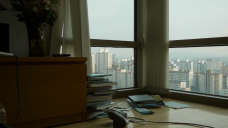
 Iso160IDoff.png1920 x 1080 - 2M
Iso160IDoff.png1920 x 1080 - 2M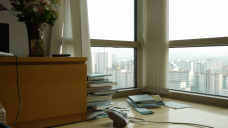
 Iso400IDoff.png1920 x 1080 - 3M
Iso400IDoff.png1920 x 1080 - 3M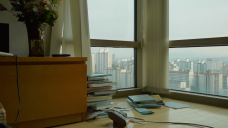
 Iso160IDhigh.png1920 x 1080 - 3M
Iso160IDhigh.png1920 x 1080 - 3M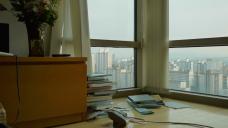
 Iso160IDhighNeatImage.jpg1920 x 1080 - 295K
Iso160IDhighNeatImage.jpg1920 x 1080 - 295K -
@mintcheerios Thanks for your thorough test. The reason you are not able to get the same result from the Photoshop highlight/shadow function is because most probably the processing in the case of the idynamic is done on the RAW file coming directly from the sensor before compression. So it is extracting the most info/Dynamic range before compression. Compared to the signal that has already been compressed into the 8bit 4.2.0 file that you are trying to boost up the shadows in the second case where Idynamic is off. The big theory is this, if it is the case then it would be very valuable to hack as you would get the most DR and RAW(in a certain way) info from the sensor.
Are the example above 100% crop? If we take the above example the Idynamic would give you about 1.5 to 2 stop more DR (The desk does seem to have a bit more of colour bloches) compared to the 400 iso video. I have been trying to do test with the idynamic, but even if the yellow icon come on it does not seem to do anything!!!! Tried with windows etc but nothing in my case, perhaps it works another way. If you can, can you put the example above at 100% and png version just to play around, because I just can't get it working. -
I finally got around to experimenting a bit with I.Dynamic, and I think it'd be worth hacking (if possible). It seems to activate when there is a high contrast scene, and you expose for the bright area.
I've attached four shots of the same scene with different settings. These are all video stills from Driftwood's seaquake settings using VLC player and then resized. I took two shots of I.D Off at ISO 160 and one at ISO 400. The dark parts of the ISO 400 shot somewhat matches the shot with I.D on high. The ISO 400 shot is so you can compare the noise and color saturation of the darker areas in the shot with ID on high and the shot where I lifted the shadows of the ID Off/ISO160 shot.
The shot where I lifted the shadows was done in Photoshop using the highlight/shadows adjustment with shadows at 29%. I was aiming to match the shot with ID on high. I tried using a curves adjustments and levels, but I couldn't get it looking as good as highlight/shadows. Levels would kill the highlights and I couldn't get curves to boost the precise regions I wanted.
Here are my observations. The lifted shot has lost a little color information and the darker areas in the ISO 400 shot look closer to the ID high shot. The lifted shot and the ID high shot both look similarly blurrier and more smeared in the darker areas than the ISO 400 shot. I'm thinking I.Dynamic does one of two things. It either boosts the darker areas and adds saturation to make up for lost color information or it simply boosts the ISO of the darker areas.
I think the shot with ID on high looks better than the boosted shadows one, but it's probably because I'm not finding the best way to boost shadows naturally. The highlight/shadow function in Photoshop seems to have affected the highlights a little blowing out detail in the buildings outside. If anyone knows a better way to lift shadows, please let me know.
I think another overlooked advantage of I.Dynamic is that we can see what the shot looks like with lifted shadows on set. It can also cut down on post processing time. As for introduced noise, it's nothing neat video can't handle. Even if this doesn't get hacked, I can still find myself using it in the limited situations I.Dynamic activates.
Hope this was useful or at least interesting.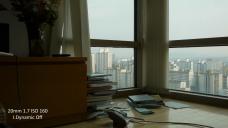
 Iso160IDoff.jpg1280 x 720 - 104K
Iso160IDoff.jpg1280 x 720 - 104K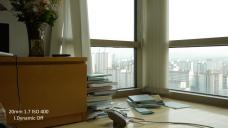
 Iso400IDoff.jpg1280 x 720 - 123K
Iso400IDoff.jpg1280 x 720 - 123K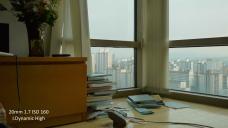
 Iso160IDhigh.jpg1280 x 720 - 124K
Iso160IDhigh.jpg1280 x 720 - 124K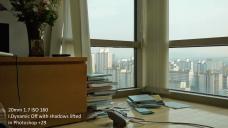
 Iso160IDoffPS.jpg1280 x 720 - 548K
Iso160IDoffPS.jpg1280 x 720 - 548K -
Yesterday I tried it with a lit scene where I put a very contrasted scene. I moved it until it was active, yellow icon on the upper left, but it did nothing.
-
If you use the std PASM dial and get the yellow idynamic on you can lock ae and essentially lock it in, however, unlike the original gh1 the ae-lcok dissapears as soon as you hit video record with ae-lock in std PASM, ahhh I hate that. Now in CMM if you get the yellow i-dynamic on and hit ae-lock it knocks the yellow straight off? I'm wondering if we can have the ae-lock enabled in std PASM mode for video, this would be a big advantage irrespective of if we can have the i-dynamic locked in or not because I would certainly use this feature. Only problem, no 24p in std PASM either. Man Pana really messed with GH1 for video.
-
The effect of the idynamic is the same for every film mode but it starts from different curves. Also with smooth the saturation is boosted
-
Has anyone tried to experiment with different film modes in conjunction with the i-dynamic? I've only had one limited experiment but I've noticed with STANDARD and VIBRANT the i dynamic shot will boost up the saturation along with the shade detail. It seems to me that it works best with either CINEMA or SMOOTH with SMOOTH actually allowing for the greatest improvement with detail in the shady parts of a composition. It helps with CINEMA too but it seems more subtle.
-
I just discovered that my kit lens is unable to do autofocus (maybe it's broken, whatever, it sucks), maybe i can see the boosted raw signal because of this.
-
I found an interesting bug:
If you are at high (800+) shooting a high contrasty scene with a subject very underexposed, with the 14-42 in manual focus mode, when you turn the focus wheel, you can see for like 10 milliseconds an image that i think is the base of the idynamic: "the magical boosted raw signal": the same image with extremely boosted exposure in dark areas.
It is like if the gh2 continuously sees boosted shadows but when it goes to record it levels the image accordingly to the film mode choosen.
Let me know -
I was bothered too. Tomorrow i'll test with better quality lenses and i'll try to compare with a cineform intermediate si-log to see if it really retains more details.
-
@Elenion I was a little bothered by the quality of the image, thought that it was just the plain codec, but now I have an answer, it must be the wide angle adapter that gave degraded the image.
It is the road in the wood that is 1600, if it is the case it is still very good. -
I have just played/graded with the idynamic road image (I hope it is ok with @Elenion ) so I post it here. It is from a warm to a more dark cold look. I really hope that the idynamic is hackable, does anyone has contacted Vitaliy about it. I would not like to be the 20th person to ask it to him. But I guess this would be a huge development.
For some they might not like the little increase in noise but for me it would be more than warranted as the example above shows. From a miss shot, to something that is gradable.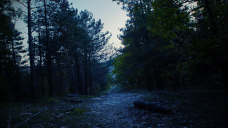
 6d7c20fa7e3bd7fe16a0970bbbb73f 6.png1920 x 1080 - 3M
6d7c20fa7e3bd7fe16a0970bbbb73f 6.png1920 x 1080 - 3M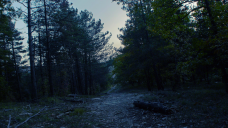
 6d7c20fa7e3bd7fe16a0970bbbb73f 5.png1920 x 1080 - 3M
6d7c20fa7e3bd7fe16a0970bbbb73f 5.png1920 x 1080 - 3M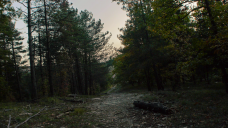
 6d7c20fa7e3bd7fe16a0970bbbb73f 3.png1920 x 1080 - 3M
6d7c20fa7e3bd7fe16a0970bbbb73f 3.png1920 x 1080 - 3M -
@danyyyel
Driftwood 176 (the one before reAQuainted)
The first image is 640 the second one 1600. Shitty lens (14-42) with a shitty wide adapter
@Hallvalla
I think that it is useful in difficult situations where iq is not too important.
With legacy lenses it seems to only adjust the saturation -
I'm impressed. That's getting a decent shot vs getting nothing at all.
Hopefully it can be hacked for more control. -
I have saved the two image of the no idynamic that I have boosted in post so as everybody can see by themselves.
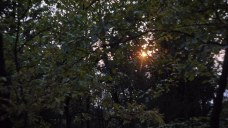
 leafequalized.png1920 x 1080 - 2M
leafequalized.png1920 x 1080 - 2M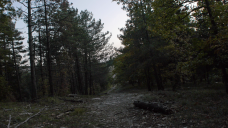
 forestequalized.png1920 x 1080 - 3M
forestequalized.png1920 x 1080 - 3M -
I have just done a little test on your images using shadow/highlight tool in photoshop. It base setting is 30/35 in the shadows which make the image about identical, but it can be seen that it is noisier than the idynamic one and more desaturated and loss colour information. This could conclude that it is effectively derived from the raw data and not a gama boost of the 8 bit output. For the skin tones I think it is a usual, that is as the curve are flatten it will tend to make the skin less flattering but it can be done back in post but we would need some example to be sure.
-
There seems to be quite a big difference in dynamic range, at what ISO did you shoot and is it a hack one.
-
MMM I made some tests with idynamic and i'm quite delused from the results. I attached the comparisons (stills from a video). IDynamic was set at High.
There is much more noise but it definitely hold more shadow details.
It enters gradually and only when it wants to.
It pushes the saturation, sometimes in a pleasant way, sometimes in a ugly way (it completely destroyes the skin color tones).
It looks like if it pushes some curves from the sensor raw signal.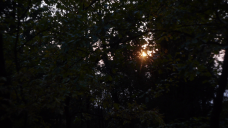
 ZOFF.png1920 x 1080 - 2M
ZOFF.png1920 x 1080 - 2M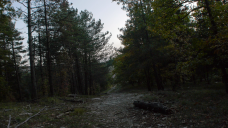
 Z2OFF (2).png1920 x 1080 - 4M
Z2OFF (2).png1920 x 1080 - 4M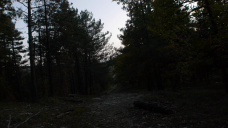
 Z2OFF.png1920 x 1080 - 3M
Z2OFF.png1920 x 1080 - 3M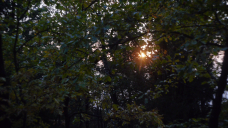
 zHigh.png1920 x 1080 - 4M
zHigh.png1920 x 1080 - 4M -
@fjolliton it is a bit difficult to judge the noise because there are so much detail. You will need to get flatter surfaces to judge it. Now is it more noise or is it more visible because the lows get brighter. I will have to try to do so test.
-
I've no interesting subjects right now, but all my tests show the same behavior: image is gradually lighten up (take some seconds). I'm now almost sure it was indeed the effect of iDynamic.
Below is a quick test showing noise.
This is with iDynamic set to off:
This is with iDynamic set to High:
-
@lolo: That's what I wonder.. it might simply be a cloud moving at the time I shot that.
However, I made some other tests: when displaying the histogram, we can clearly see that when enabling iDynamic, the image is lighten up (ISO or contrast slope, I don't know) whenever there are a large part of the image which is underexposed. (Easy to check by adjusting aperture and looking at histogram when switching from Off and High in iDynamic setting from the quick menu.) But that's what we could expect from such a feature.
I will post some other shot samples soon. -
@Ian_T: I was refering to iDynamic. I was thinking, after reviewing my shot, that enabling it might lower the image quality, because once the image is lighten up, it *seems* that there is more noise. That's entirely subjective on my part. But since this test was accidental, I will try to reproduce it.
-
@fjolliton and if it was a cloud?, try to replicate with more control in the parameters at stake please, :)
Start New Topic


Howdy, Stranger!
It looks like you're new here. If you want to get involved, click one of these buttons!
Categories
- Topics List23,990
- Blog5,725
- General and News1,353
- Hacks and Patches1,153
- ↳ Top Settings33
- ↳ Beginners256
- ↳ Archives402
- ↳ Hacks News and Development56
- Cameras2,366
- ↳ Panasonic995
- ↳ Canon118
- ↳ Sony156
- ↳ Nikon96
- ↳ Pentax and Samsung70
- ↳ Olympus and Fujifilm100
- ↳ Compacts and Camcorders300
- ↳ Smartphones for video97
- ↳ Pro Video Cameras191
- ↳ BlackMagic and other raw cameras116
- Skill1,960
- ↳ Business and distribution66
- ↳ Preparation, scripts and legal38
- ↳ Art149
- ↳ Import, Convert, Exporting291
- ↳ Editors191
- ↳ Effects and stunts115
- ↳ Color grading197
- ↳ Sound and Music280
- ↳ Lighting96
- ↳ Software and storage tips266
- Gear5,420
- ↳ Filters, Adapters, Matte boxes344
- ↳ Lenses1,582
- ↳ Follow focus and gears93
- ↳ Sound499
- ↳ Lighting gear314
- ↳ Camera movement230
- ↳ Gimbals and copters302
- ↳ Rigs and related stuff273
- ↳ Power solutions83
- ↳ Monitors and viewfinders340
- ↳ Tripods and fluid heads139
- ↳ Storage286
- ↳ Computers and studio gear560
- ↳ VR and 3D248
- Showcase1,859
- Marketplace2,834
- Offtopic1,320




